








Tony Watson, Director of Procurement at Accord Healthcare, joins us to discuss how organisations with varying degrees of purchasing power can influence, engage and encourage supply chain collaboration to meet sustainability objectives.
As a fast-growing pharmaceutical company distributing medicines in over 85 countries, Accord Healthcare (Accord) has had to take and inventive approach to help improve access to vital pharmaceutical care.
he company has never shied away from finding new ways of doing things and Tony Watson, Director of Procurement, is no exception. He sits down with us today to discuss the importance of relationship-building and values-based procurement when developing a robust supply chain – particularly in times of great transformation.
“The COVID-19 pandemic was the most transformational point I’ve seen within this industry,” says Tony. “There has been a huge push in evolving the way we do things, especially in the procurement world. Prior to the COVID-19 pandemic, we were very much office-based. We had good relationships with our suppliers, but we were bringing them to us.
“When the pandemic began, everyone went home, the return to the office is a hybrid approach
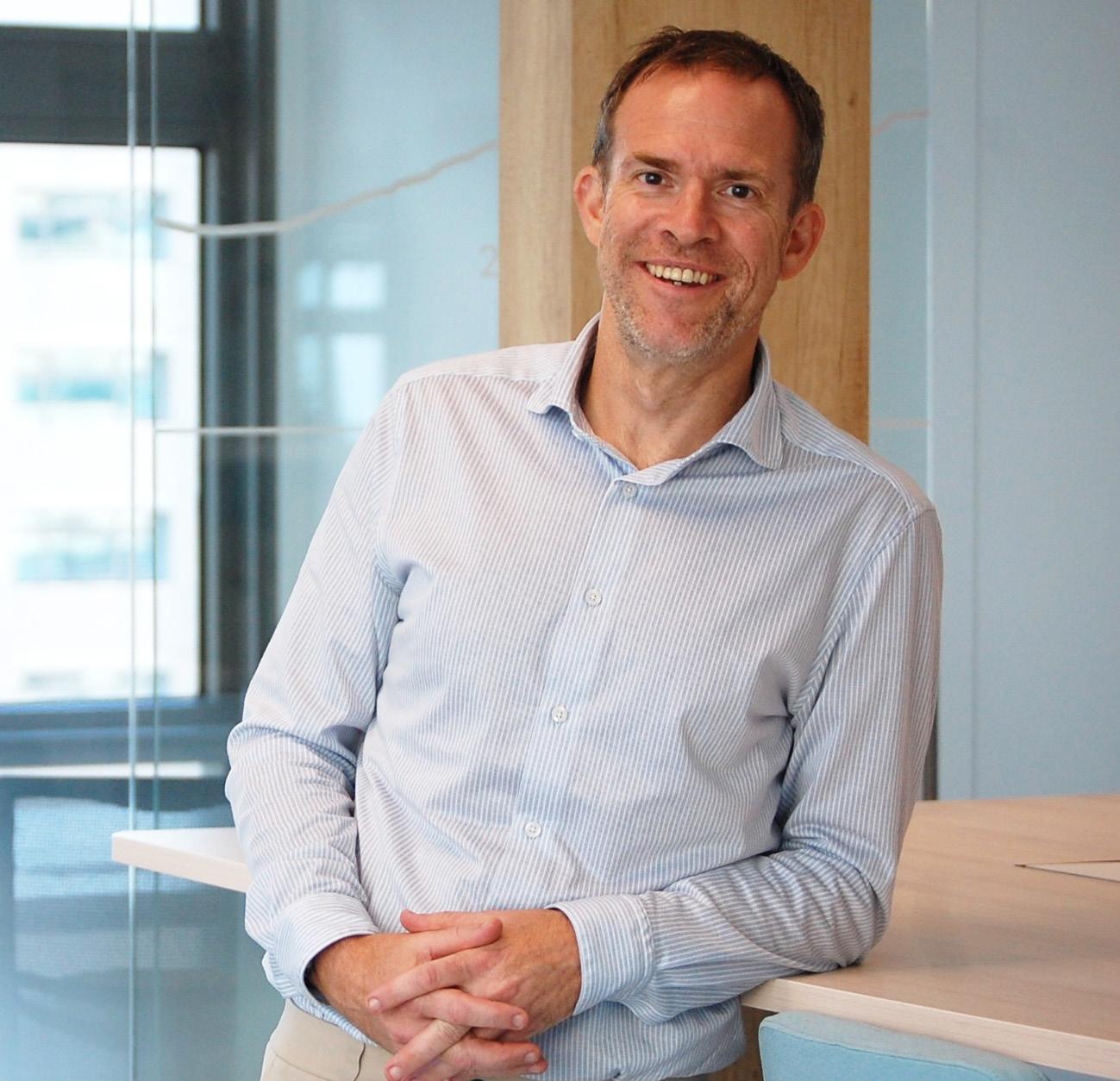
across our matrix organisation, with my team operating from six locations globally. We have all changed the way we work. What this physical separation has done for us has led to a culture where we are now much more actively focused on relationships.
“I now take every opportunity I can get to be face-to-face with my team and suppliers, because when you get the opportunity to connect


on a human level it makes that collaboration so much smoother. I’m a massive advocate for prioritising face-to-face communication in the workplace, and I think that by using that philosophy with our suppliers, we can build stronger relationships. As people, we’ve made the process of communication incredibly complex, but it can be so much simpler.”
This value of simple, straightforward communication is something Tony carries with him in all aspects of his role.
“We’ve been focusing on keeping what we do simple,” says Tony. “There’s no point in making something complex for the sake of it. So now, whenever we’re looking at any type of process or project, the question is always: ‘What do we need to achieve, and how are we going to get there?’
“To make things simpler, we have to start with the data. I have an intense curiosity for whatever I’m working on, so I can get under the skin of what’s in front of me – by having that in-depth knowledge, you’re making things more straightforward in the long run.”
This is underpinned by Tony’s implementation of values-based procurement, which prioritises achieving high value for the patient.
“My approach is what we call valuesbased procurement,” says Tony. “So first of all, we need to look at why

we are doing what we do – because ultimately our aim at Accord is that we need to ensure patients can get access to the medicines they need, when they need them.
“It’s almost like a retail mindset. We need to have the medicines on the shelf, because otherwise a patient can’t access what they need, and I think this

“QYOBO provides us with an online platform which allows us to see the market dynamics for any active pharmaceutical ingredient (API) that we buy”
everything they teach is underpinned by positive values – for instance, trust, integrity and friendship.
“This really connected with me, and it’s shaped how I approach procurement strategy. I’ve always strived for strong relationships that create value across the supply chain, and meeting Dr Neil Hawkes helped me further consider what that looked like in our modern supply chains.
“How can we spend time with suppliers, and how can we build up trust? Because when you start to build trust, that’s when you can create real commercial benefits and long-term strategic partnerships. By investing that time and building a bridge of trust, it can be easier to resolve any issues that may develop across the relationship.
is what drives me and my team. So there is a constant need to procure and distribute these medications. And to do that, I use values-based procurement.
“A few years ago, I met Dr. Neil Hawkes, who's responsible for the implementation of values-based education across the UK. If you go into schools today, you can see that
“We’re very keen to bring our suppliers into our factories – we have significant facilities in Devon and Newcastle, and we bring our suppliers to those sites and let those sites directly communicate what they need from the relationship, and vice versa.
“When we have this direct communication, where our sites can say ‘I need to receive this purchase




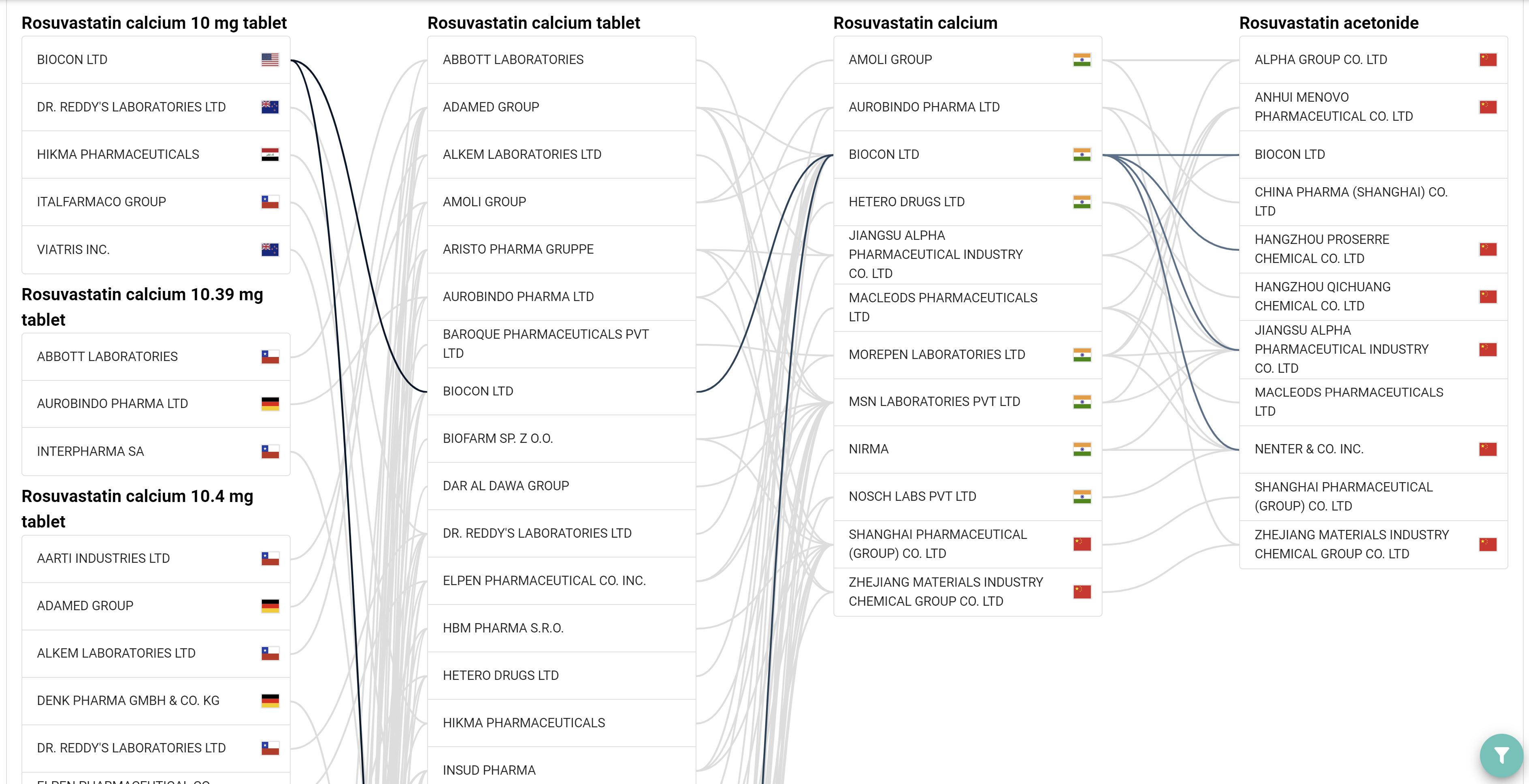















for a demo of the QYOBO platform. ...or analyse the supply network of more than 2 million drugs
Healthcare in getting insights that no one else has.
“What sets Medica Packaging apart for us is their focus on an agile supply chain. It is absolutely critical that when we make a move on the market that we can react quickly and efficiently”
order by this time and if something’s going to be late, pick up the phone to me,’ it makes the whole process flow better. This may sound very simplistic, but it’s at the core of everything we do. People connect when they have a relationship. If something isn’t right, they pick up the phone. They know each other because they’ve met and they have an emotional connection.
“If you’ve taken time to emotionally invest in your suppliers on that level, they’re more likely to provide you with the support you need to build a more agile supply chain. Because of these relationships, we’re better equipped to respond to the changing dynamics of the marketplace. In this day and age there are so many unknowns, and we’ve approached this by trying to weave agility into our supply chains in order to build out our resilience.”
In order to develop these relationships with suppliers, Accord puts them into clear categories to better understand the needs for that specific connection.
“We have very well-defined supplier definitions,” says Tony. “For some of our suppliers, the touch is very light because we have very straightforward requirements that don’t call for a more hands-on approach. For the rest of our
suppliers, we have three categories: strategic, critical and developing.
“Our strategic suppliers represent about 80% of our spend, and we prioritise building a lasting relationship with them by ensure we properly invest our time with them.
“An example of a critical supplier is a supplier who may be small but supplies a crucial product. For instance, steroids are a key product used across all of our tablets, so we need to be in close communication with those specialist suppliers to ensure that the product remains consistent.
“Our developing suppliers category was introduced as a way to identify suppliers that we believe will have a long-term future with us. It takes time to build pharmaceutical supplier relationships, so we like to take the time to work alongside them to get to the point where they’re in a really strong position with us.
“A great example of a developing supplier is Medica Packaging, one of our suppliers who provides printed packaging. When we started working with them, we could see that they had the right mindset, the right level of
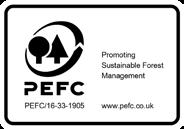
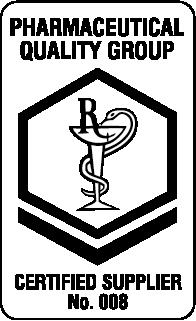
trust and a willingness to connect with us.
“This helped us decide to give them a small slice of the portfolio while we develop this relationship, meaning that they are treated the same as a strategic supplier in terms of our approach.
“What sets Medica Packaging apart for us is their focus on an agile supply chain. It is absolutely critical that when we make a move on the market that we can react quickly and efficiently. The typical lead time for medical cartons is six to eight weeks but, when a client urgently needed 400 cartons, Medica
with have played a hugely significant role in helping the procurement process run smoothly. As a leader, his main target is to celebrate his team.
“To me, the key priority in leadership is empowerment,” says Tony. “Through empowering your teams, you can get unbelievable performance – I’ve seen people come up with situations I never dreamt possible. Sometimes I’m a little in awe of the work that my teams produce.
“In my role, I have many different people looking to me for different reasons and I strive to treat everybody
“Having the latest information directly at my fingertips allows me to become very knowledgeable very quickly”
Packaging was able to deliver that within two weeks.
“This all starts with relationship building. We had made it very clear to Medica Packaging what was important to us and how we can blend with them on development. We’ve got planning stakeholders, artwork stakeholders, procurement stakeholders and quality stakeholders. All of those people have to work with our suppliers, so it’s a real joint value-added activity that gives us an agile, responsive supply chain.”
But while Tony has pioneered this approach in working with suppliers, he emphasises that the people he works
absolutely equally. If someone is raising something to me, I give them the same amount of attention – regardless of their position in the business. Through this we get empowerment, and teams that feel supported enough to make decisions on their own.
“Everyone has their own unique skill sets, and my role as a leader is to facilitate the growth and development of those talents. One of the key things to remember is that we don’t stay around forever, so we need to be developing the leaders of the future. I want to help the people I work with start to rise up, so when
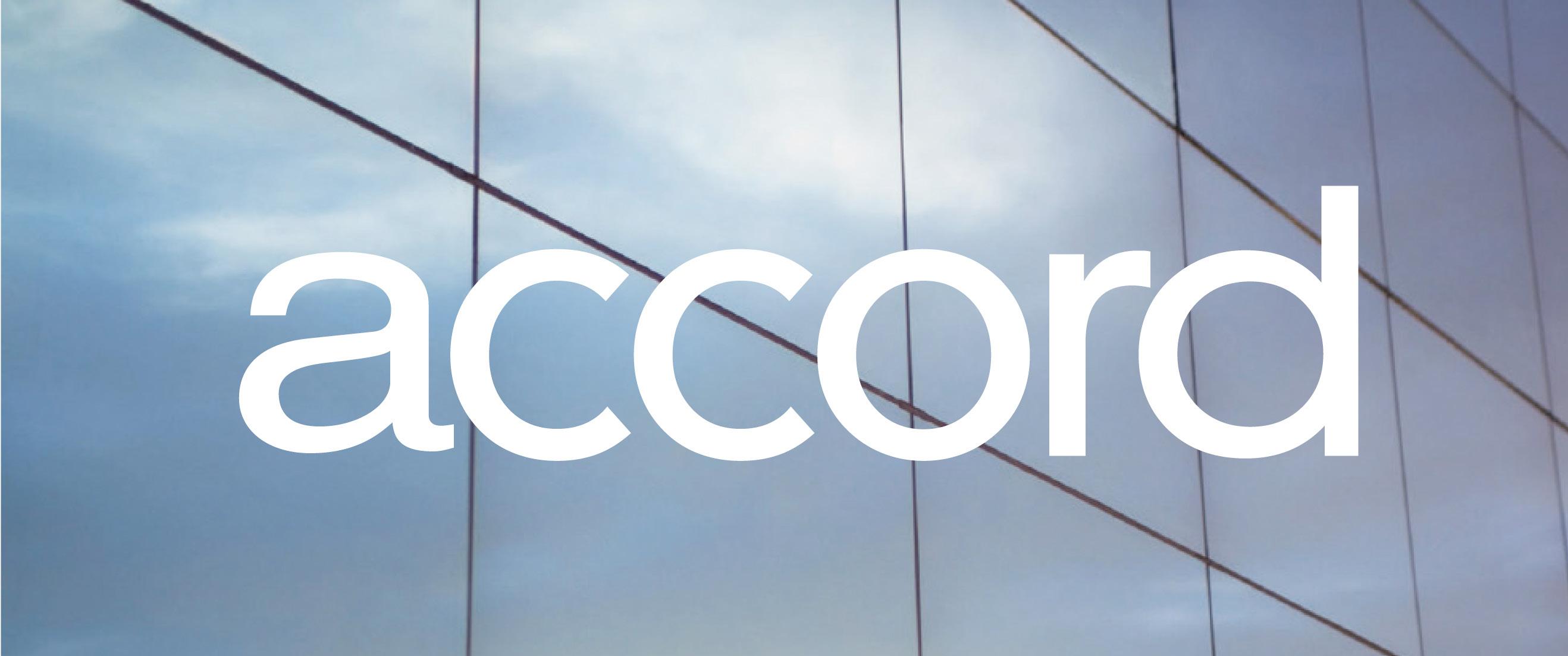
an opportunity comes they have the confidence to stand up and lean into that.”
According to Tony, this confidence is also facilitated by the strong bond he and his team have built, thanks to an inventive approach to team-building since the COVID-19 pandemic.
“Before the pandemic, we all used to be able to easily socialise face to face,” says Tony. “So when we all had to start working from home, the first thing we did would put in a couple of meetings on Tuesdays and Thursdays, for half an hour.
“What I’ve tried to do with this is substitute the time when you come in in the morning, or you’re getting lunch or a cup of coffee, so you still get that social aspect of the office culture. This has been very beneficial for us and, with the majority of our team working at different sites, we’ve kept this approach to this day.
“We had to get super creative with team building during the COVID-19
pandemic, because we couldn’t rely on traditional in-person activities paintballing or canoeing, for instance. Instead, we had fancy dress quizzes, virtual wine tastings and so much more. Doing all of these different things brought the team together and kept them close – and we still see the benefits of that today, because we built a strong team where people felt connected in a world where we had all of a sudden become so isolated.”
While a strong team has made processes more efficient at Accord, Tony celebrates the tools and emerging technologies that have further streamlined operations –including software platform QYOBO.
“QYOBO provides us with an online platform which allows us to see the market dynamics for any active pharmaceutical ingredient (API) that we buy,” says Tony. “We have many molecules that we buy the API for, so we have a lot to keep track of at this end, but QYOBO has created a system that helps us understand the marketplace very comprehensively.

“A job that would normally take us two or three days now takes a matter of minutes and provides us with double the information we used to have access to. I can quickly and efficiently understand what’s going on with pricing, what’s going on with our suppliers and what’s going on with the market supply and demand.
“QYOBO has transformed our approach towards APIs and allowed us to become incredibly competitive. With the help of this tool, we’ve been able to drive down our costs significantly.
“Having the latest information directly at my fingertips allows me to become very knowledgeable very quickly. If we need to know about a specific API, in five minutes we have an unbelievable report on the market dynamics: who the suppliers are, who else is buying it, what regulatory issues there are and what’s going on further down the supply chain.”
Wrapping up our conversation, Tony takes a chance to celebrate the company culture at Accord and
highlights the organisation’s charitable work.
“I’m very proud of the charitable work we’ve done with International Health Partners (IHP),” says Tony. “We worked closely with IHP at the start of the COVID-19 pandemic. There were industry-wide freight and supply issues, which meant that industry donations across major pharmaceutical companies had fallen to an all-time low. To help provide access to life-saving medicines, we doubled our donations.
“As time was of the essence at this critical moment, we then worked on a strategic project with IHP called Project Hope, where we mobilised our efforts, pulling forward our usual yearly donation of essential medicines within a week.
“Internally, we undertook a project called ‘Take Time for Ukraine’ which was an unprecedented effort from Accord employees to not just support IHP, but to send humanitarian aid worth over £8m to the Ministry of Health of Ukraine.
“These vital medicines can provide treatments in live-or-death situations for vulnerable communities, and we’ve been lucky enough to have the resources to help people living in areas where people lack access to basic healthcare. To me, that’s what working in this industry is all about – helping the patients.”
Learn more about Accord Healthcare here.
Tony recommends The Culture Map: Breaking Through the Invisible Boundaries of Global Business by Erin Meyer.
“This book is all about how different cultures do business differently,” says Tony. “For example, some countries are very friendly and emotional in their communication whereas others are much more direct, which can come across as aggressive if you’re not from that culture. This can get complicated when people from different cultures are trying to negotiate.
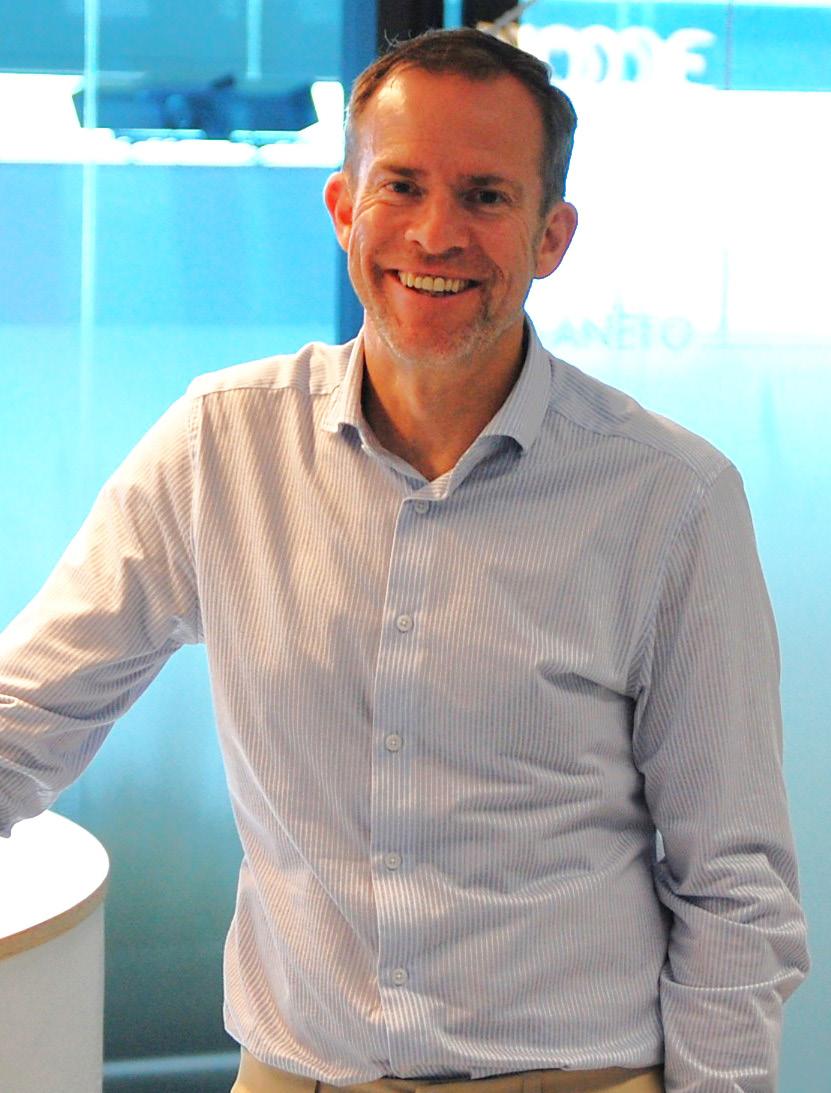
“Reading this book has made me a lot more mindful of how I give feedback to suppliers from different cultures – the way I naturally communicate could come across as rude to some cultures, and too fluffy in others. It’s crucial for building relationships.”
Tony is looking forward to hosting a panel titled ‘Reducing Sustainable Supply Chain Risks Through Effective Stakeholder Management & Engagement’ at the Verdantix Sustainable Supply Chain Summit Europe 2024, in Brussels, Belgium on October 10, 2024.
“I’m excited to discuss how you bring values-based procurement into the conversation of sustainability,” says Tony. “There’s a lot of confidentiality within the pharmaceutical industry, but sustainability is an area of work where sharing information is crucial.
“My panel will focus on reducing sustainable supply chain risks through effective stakeholder management and engagement, and how we can address sustainability concerns for effective supply chain mapping. I’m really keen to be involved in this, because I’d like to continue to spread the message about values-based procurement.”
Connect with Tony
accord-healthcare.com